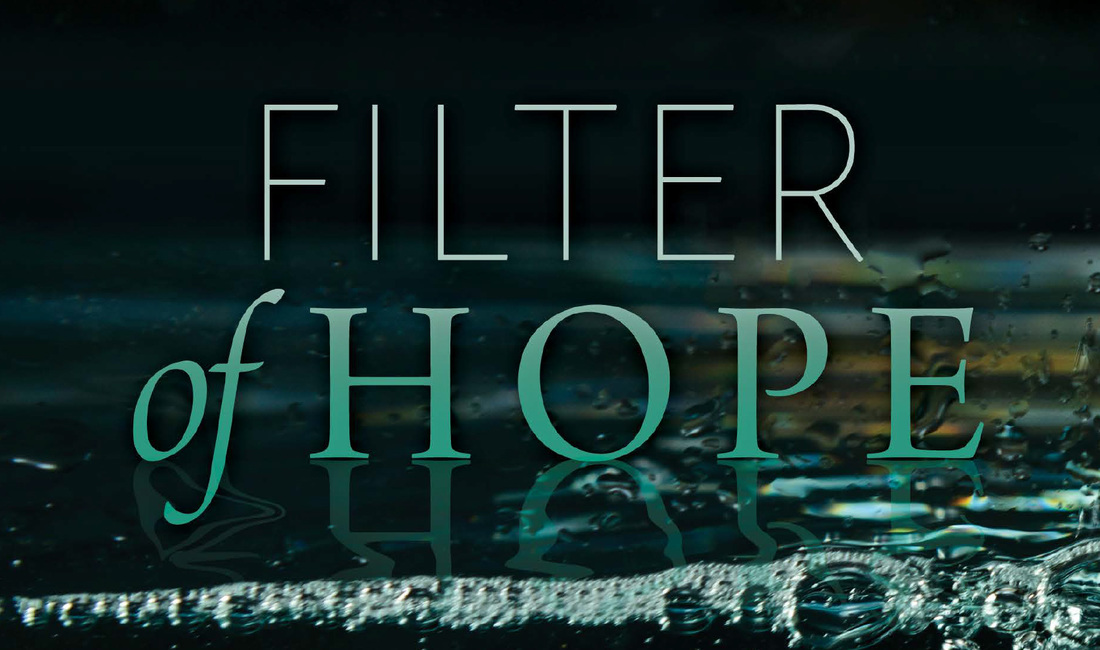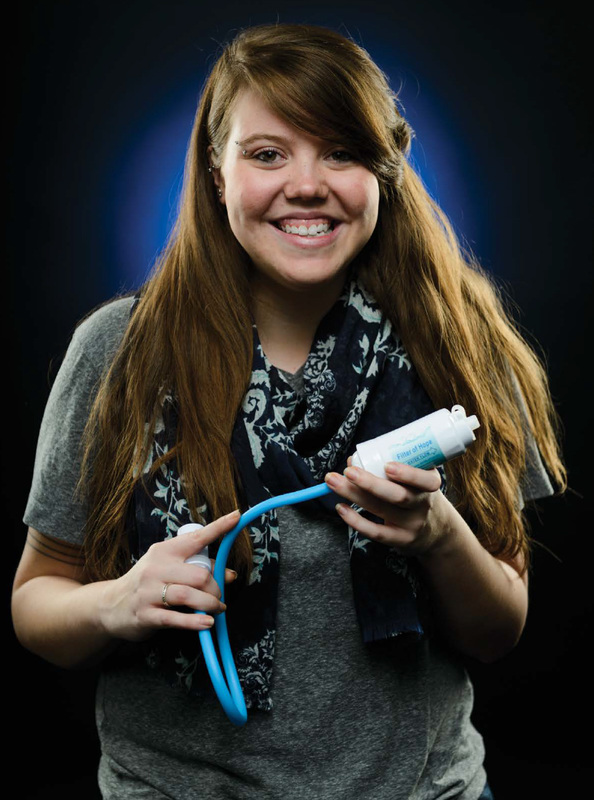Being able to just walk down the hall and fill up a bucket with clean, drinkable water is something I couldn't imagine being unable to do. These people have dirty brown water they get from a river, while we're privileged to have all these water fountains and sinks." My CHES courses taught me the power of bringing communities together, and community-based work has become my passion.” |
Filter of HopeHuman Development and Family Studies major Jordan Stone was among more than a dozen students who took the gift of clean water to the Dominican Republic.
Human Development and Family Studies major Jordan Stone was among more than a dozen students who took the gift of clean water to the Dominican Republic. Jordan Stone, a human development and family studies major, was among more than a dozen students who took the gift of clean water to the Dominican Republic. Clean water flowing from a tap — it’s an everyday sight in Tuscaloosa, something we take for granted. But for many living in underdeveloped countries, it’s a desperate need. “I saw firsthand how being sick affects children’s development. When kids got access to clean water and became healthy, they could go back to school and parents could go back to work. It’s about so much more than water — It’s about life,” Stone says. The service project was conducted through a nonprofit called Filter of Hope. The organization’s founder, Bart Smelley, demonstrated the filtration process to students. “We were learning what social enterprises look like and the common issues they face,” Stone recalls. “Bart walked in with a bucket, some cow manure and a filter.” Smelley’s demonstration, which produced clean, drinkable water from the manure, captivated the students. “After tasting the formerly disgusting water, we were totally on board,” Stone says. Stone helped spearhead the fundraising efforts to buy water filters, which cost about $40 each, for the families in the Dominican Republic. Filter of Hope, which is based in Panama City Beach, Florida, arranges for the manufacture and distribution of the hollow-fiber membrane filtration system that people can use with little training. The filtration works through a system of microtubules that trap bacteria and contaminants in the water as it passes back and forth through the filter. According to the organization, the advantage of these filters is that they use no chemicals or electricity. “They’re guaranteed for 10 years, with very little upkeep, just a backwashing once a week,” Stone says. “And they can filter up to 150 gallons of water a day.” Stone says the knowledge of how important clean water is — and how much Americans take it for granted — inspired her efforts. “Being able to just walk down the hall and fill up a bucket with clean, drinkable water is something I couldn’t imagine being unable to do. These people have dirty brown water they get from a river, while we’re privileged to have all these water fountains and sinks.” In the Dominican Republic, the students focused their efforts on neighborhoods around the town of La Vega, where Filter of Hope already had strong connections with two fulltime American missionaries who could connect the students with families who needed water. The team brought about 300 filters to the families. Sometimes one of the challenges, Stone says, was helping families understand why they needed the filters. “Even if their water looks clear, it still has viruses and bacteria that they can’t see. So we needed to educate them about what the filters do and why the water has been making them sick.” The student-trainers took a holistic approach to their education efforts. In addition to handing out the filters and showing potential recipients how to use them, the students took time to connect with the families and to inspire some of the children in La Vega with the novelty of the filters. The filter demonstration used a classic sales technique: Take a bucket of dirty water and watch faces light up when clear liquid pours from the filter. The students say the reactions were priceless. Stone’s HDFS concentration is in adolescents and youth, with a minor in addictions and recovery. “My CHES courses taught me the power of bringing communities together, and community-based work has become my passion,” she says. |
| Reunion Magazine | REUNION MAGAZINE |



